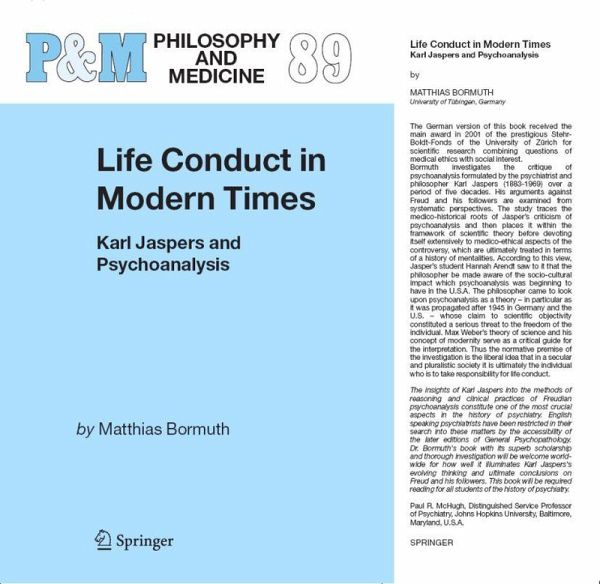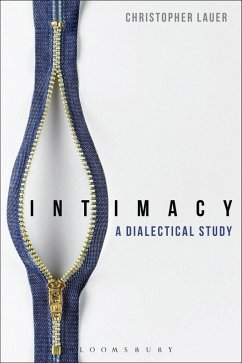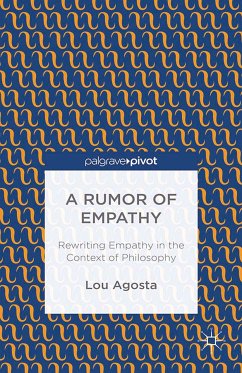
Life Conduct in Modern Times (eBook, PDF)
Karl Jaspers and Psychoanalysis
Versandkostenfrei!
Sofort per Download lieferbar
72,95 €
inkl. MwSt.
Weitere Ausgaben:

PAYBACK Punkte
36 °P sammeln!
The German version of this book received the main award in 2001 of the prestigious Stehr-Boldt-Fonds of the University of Zürich for scientific research combining questions of medical ethics with social interest.This award-winning book investigates the critique of psychoanalysis formulated by the psychiatrist and philosopher Karl Jaspers (1883-1969) over a period of five decades. His arguments against Freud and his followers are examined from systematic perspectives. The study traces the medico-historical roots of Jasper's criticism of psychoanalysis and then places it within the framework of...
The German version of this book received the main award in 2001 of the prestigious Stehr-Boldt-Fonds of the University of Zürich for scientific research combining questions of medical ethics with social interest.
This award-winning book investigates the critique of psychoanalysis formulated by the psychiatrist and philosopher Karl Jaspers (1883-1969) over a period of five decades. His arguments against Freud and his followers are examined from systematic perspectives. The study traces the medico-historical roots of Jasper's criticism of psychoanalysis and then places it within the framework of scientific theory before devoting itself extensively to medico-ethical aspects of the controversy, which are ultimately treated in terms of a history of mentalities. According to this view, Jasper's student Hannah Arendt saw to it that the philosopher be made aware of the socio-cultural impact which psychoanalysis was beginning to have in the U.S.A. The philosopher came to look upon psychoanalysis as a theory - in particular as it was propagated after 1945 in Germany and the U.S. - whose claim to scientific objectivity constituted a serious threat to the freedom of the individual. Max Weber's theory of science and his concept of modernity serve as a critical guide for the interpretation. Thus the normative premise of the investigation is the liberal idea that in a secular and pluralistic society it is ultimately the individual who is to take responsibility for life conduct.
This award-winning book investigates the critique of psychoanalysis formulated by the psychiatrist and philosopher Karl Jaspers (1883-1969) over a period of five decades. His arguments against Freud and his followers are examined from systematic perspectives. The study traces the medico-historical roots of Jasper's criticism of psychoanalysis and then places it within the framework of scientific theory before devoting itself extensively to medico-ethical aspects of the controversy, which are ultimately treated in terms of a history of mentalities. According to this view, Jasper's student Hannah Arendt saw to it that the philosopher be made aware of the socio-cultural impact which psychoanalysis was beginning to have in the U.S.A. The philosopher came to look upon psychoanalysis as a theory - in particular as it was propagated after 1945 in Germany and the U.S. - whose claim to scientific objectivity constituted a serious threat to the freedom of the individual. Max Weber's theory of science and his concept of modernity serve as a critical guide for the interpretation. Thus the normative premise of the investigation is the liberal idea that in a secular and pluralistic society it is ultimately the individual who is to take responsibility for life conduct.
Dieser Download kann aus rechtlichen Gründen nur mit Rechnungsadresse in A, B, BG, CY, CZ, D, DK, EW, E, FIN, F, GR, HR, H, IRL, I, LT, L, LR, M, NL, PL, P, R, S, SLO, SK ausgeliefert werden.













